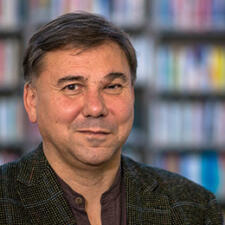
To gauge how dissatisfaction with democracy (which often takes the form of a demand for a different democracy) will affect the chances of the European Union's survival, we must make sense of three paradoxes. The first is: Why are Central European voters, who opinion polls tell us constitute some of the continent's most pro-European electorates, ready to put in power anti-EU parties that openly loathe independent institutions such as courts, central banks, and the media? I will call it the “Central European Paradox.” Second: Why has the political mobilization of the younger generations in Western Europe, who according to opinion polls are much more liberal and friendly to the Union than older voters, not led to the emergence of pan-European pro-EU populist movement? I will call it “West European Paradox.” And third: Why are Europeans so resentful of Brussels’ elites, when they are the most meritocratic elites in Europe? I will call it the “Brussels Paradox.”
Ivan Krastev is the Chairman of the Centre for Liberal Strategies in Sofia and Permanent fellow at the Institute for Human Sciences, Vienna. He is a founding board member of the European Council on Foreign Relations, a member of the Board of Trustees of The International Crisis Group and is a Contributing Opinion Writer of The New York Times. His latest books in English are “Democracy Disrupted. The Global Politics on Protest” (UPenn Press, May 2014); “In Mistrust We Trust: Can Democracy Survive When We Don't Trust Our Leaders?” (TED Books, 2013).
He is a co-author with Stephen Holmes of a forthcoming book on Russian politics. His book “After Europe” is forthcoming in English (Penn Press, 2017) and in German (Suhrkamp, 2017).